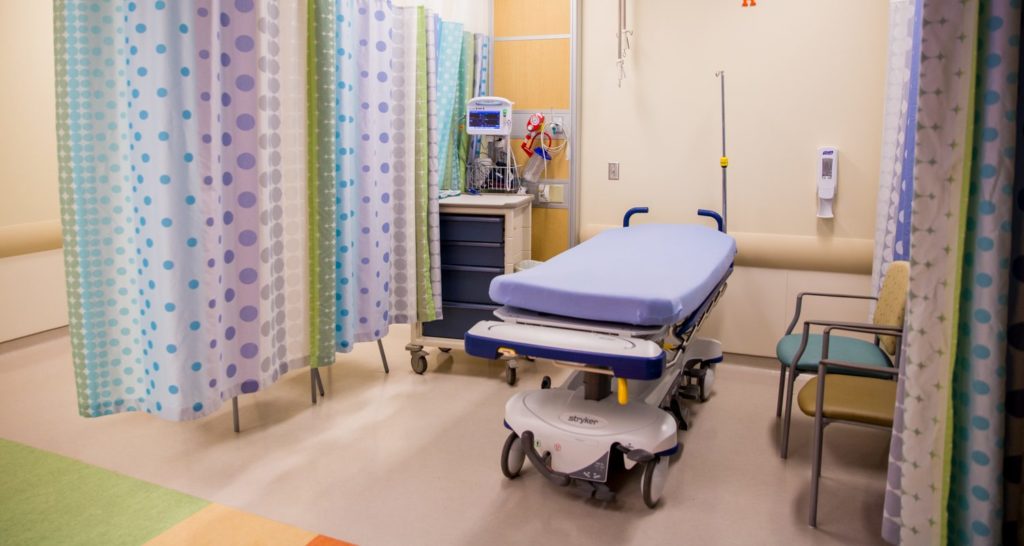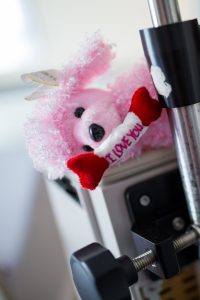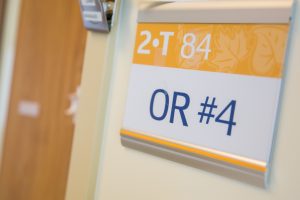
Minimizing the stress of surgery
For any child and their family, surgery can be a stressful and scary experience, even if the procedure is a minor one. For Carmen Genuardi-Binns, dental surgery for her son Nolan was terrifying. Nolan has Autism Spectrum Disorder and has trouble communicating verbally.
Nolan is part of a study led by researchers at McMaster Children’s Hospital that is exploring how special accommodations might minimize the stress and trauma that can be associated with surgery for children with autism. The study is led by anaesthesiologist Dr. Amanda Whippey and has just completed its first phase, which included Nolan.
“It would have been a very different and extremely stressful experience for both of us without the special accommodations.”

With this study, special attention is made by all healthcare providers involved in the surgery to ensure the process goes smoothly. The special accommodations provided are dependent on the child’s needs. So, hospital staff work with the family beforehand to understand how to facilitate a more personalized, positive experience. On the day of the surgery, a prioritized booking is provided and a sedation team and child life specialist (CLS) are assigned. When the family arrives, they’re brought to a quiet recovery room to meet the team. The CLS stays with the family until surgery to ensure the parents and child are comfortable and make any changes to the environment that are needed. When it is time for the procedure, the parent and CLS accompany the child to the operating room, then after surgery the child is discharged directly from the recovery room.
“The whole team reviews the child’s triggers (are they sensitive to noise, light, crowds, specific visuals), communication style, whether assistive devices are needed, motivators, how they transition between environments and warning signs of not coping well,” says Christine Lahey, CLS involved in the study. “Knowing all of this information in advance allows us to proactively create an environment where the child will feel most comfortable.”
Finding what’s best for Nolan
In Nolan’s case, Christine explained to Carmen the step-by-step process leading up to surgery. For Carmen, this was crucial because with Nolan being nonverbal, she was his voice and security for the procedure. A pre-sedation was administered to reduce the stress of an unfamiliar environment and allow a nurse to start an IV. Then, when Nolan became drowsy, Christine ensured he was comfortable in bed and recommended to Carmen to sit with him, comfort him and sing to him.

“Being able to enter into the surgery room with Nolan, hold him in my arms and sing to him while they put the mask on him, and as he drifted off, meant so much to me. Plus, having Christine with us, encouraging me, on our way to the OR made me so much stronger. I couldn’t have done it without her!” says Carmen. “Had this not happened, Nolan would have been screaming, crying and terrified. It would have been a very different and extremely stressful experience for both of us without the special accommodations.”
“Eventually, the goal is to make this a permanent service.”
Although the study results are not yet published, Dr. Whippey says, “all 20 cases in the first phase had a positive outcome. There has been 100 per cent support and endorsement of this initiative. Not only from parents, but also from all the health care providers involved including staff from the preop clinic, same day surgery, the operating room, anesthesia and recovery room. Eventually, the goal is to make this a permanent service.”
Dr. Whippey is fulfilling a real need with this service however, to her knowledge there are only two other sites in North America and four sites world-wide that are able to provide it. She hopes to start the second phase of the study over the summer. In the meantime, teams at McMaster Children’s Hospital will continue to provide extra support to children and their families who need it.
